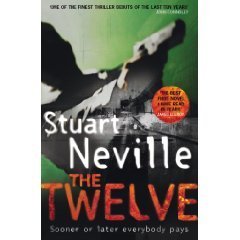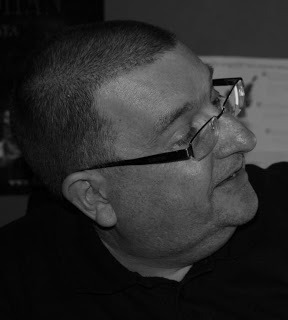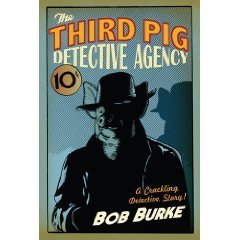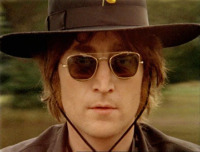Matt Rees's Blog - Posts Tagged "john"
Review: The blood and ghosts of Belfast

The Twelve by Stuart Neville
Harvill Secker (July 2, 2009 isbn: 1846552796)
(to be published in US in October as “The Ghosts of Belfast”, Soho Crime isbn: 1569476004)
Things that seemed clear enough to kill for during a conflict become impossible to look at once the murdering is at an end. Anyone who’s lived through a war or a time of terrorism could tell you that. Most of us bury those images. Gerry Fegan, the main character of Stuart Neville’s disturbing, compelling debut novel “The Twelve,” can’t look away. The ghosts of the people he killed as an IRA operative hang around with him, watching, taunting. The result is as thought-provoking a book on the aftermath of conflict as you'll ever read.
At first it seems Fegan is merely mad with trauma, remorse and drink. A hopeless casualty who’s failed to move on, as the rest of Northern Ireland steps into a new world of peace and reconciliation. Then the ghosts urge him to avenge them, killing the IRA street bosses and police turncoats who set up their deaths. The book takes an eery leap into the supernatural reminiscent of the books of Neville’s fellow Irishman John Connelly. The ghosts become characters in the book until – without giving away one of the most chilling moments in Neville’s climax – we see the proof that Fegan isn’t crazy, or if he is then he isn’t the only one who’s crazy. Instead, he shares a bond with the other bloodied footsoldier, a British agent named Campbell who can no longer imagine life without the danger of discovery and death.

Neville’s masterstroke is to take a post-conflict situation where of necessity a lot of former bad guys are converted to good guys -- gunmen made into legislators still running corrupt business sidelines -- and to show the price paid by those who can’t shrug off their past. Just as with the Palestinian militias of my Omar Yussef Mysteries, there was always a streak in the IRA that was more interested in racketeering and extortion than it was in fighting for "freedom" – all the killing was just a pretext for being the hardest gangsters in town. Neville’s book is a thrilling record of the traces of crime and blood left behind when the politicians command us to move on.
“What happened to the third little pig, Daddy?”: Bob Burke on pig detectives and his Writing Life

Anyone who’s perused the crime fiction section of their bookstore knows the joy of finding something original among the tired old shelves of loner detectives who play by their own rules on the mean streets of some dingy inner city. The clichés of the genre were uppermost in my mind when I chose to write about Omar Yussef, a schoolteacher and detective in a Palestinian refugee camp on the edge of Bethlehem. Irish writer Bob Burke has not merely blown the crime formula away like Dirty Harry's Magnum – he’s used them as the source of much of the fun in his great new novel “The Third Pig Detective Agency.” Bob’s first book in the series is populated by characters from nursery rhymes and fairy tales. His detective is the surviving Little Pig (after the Big Bad Wolf ate the first two) and his mean streets are in Grimmtown (as in The Brothers Grimm of fairy tale fame). In my review, I wrote that “Third Pig” is “undoubtedly the most whimsical hardboiled detective novel ever written, and it's utterly delightful.” As you’ll see from this interview, so is Bob Burke.
How long did it take you to get published?
Since I started taking writing a bit seriously, about three years – but I was lucky.
Would you recommend any books on writing?
In terms of what I got out of them, I’d suggest two: Stephen King’s On Writing for its very straightforward, no nonsense approach to putting pen on paper (as well as being a very honest autobiography) and Carole Blake’s From Pitch to Publication which shows how the industry works from first draft, through getting an agent, contracts, publication etc. Both are invaluable for anyone starting out.
What’s a typical writing day?
During school term I get my sons to school and am back at the house by 9:30 (probably still asleep). I’m definitely not a morning person so after a refueling session with coffee, I start by checking email, blogs, twitter and doing any publicity bits and pieces that may have arisen (aka arseing around on the web). Once I’ve evolved from zombie to something approaching human I start on whatever story I happen to be working on and work through until about 5pm, with numerous refueling stops along the way (coffee, must have more coffee). I never worry about word counts as long as I have something on paper (or on PC to be more accurate). Eventually something tangible appears from the combination of brain, caffeine and willpower.
Plug your latest book. What’s it about? Why’s it so great?

Harry Pigg – sole survivor of the unfortunate Three Little Pigs incident and self-styled master detective – is hired by Aladdin to locate his missing lamp. The trail leads Harry through a maze of unreliable informants, mysterious strangers, not-so-dastardly villains, occasional beatings and an unpleasant encounter in a sewer. Is it great? Most people that have read it seem to like it, which is all I can ask for. It’s certainly a different take on the traditional detective novel.
How much of what you do is:
a) formula dictated by the genre within which you write?
b) formula you developed yourself and stuck with?
c) as close to complete originality as it’s possible to get each time?
The formula for the detective story (particularly the hard-boiled type) is so well established that it provided the perfect template to work with – and take the piss out of. I just wanted to approach it from a slightly skewed angle but still work with all the conventions that people are familiar with (and probably expect). I’d like to think that my take on it has some degree of originality that will make readers want to come back to it again (and again and again and…)
What’s your favorite sentence in all literature, and why?
Squire Trelawney, Dr. Livesey, and the rest of these gentlemen having asked me to write down the whole particulars about Treasure Island, from the beginning to the end, keeping nothing back but the bearings of the island, and that only because there is still treasure not yet lifted, I take up my pen in the year of grace 17__ and go back to the time when my father kept the Admiral Benbow inn and the brown old seaman with the sabre cut first took up his lodging under our roof.
It’s not great literature but that one line, the opening to “Treasure Island,” opened up the world of story to me. With that book I went from reading stories that were short and illustrated to a more intimidating volume that was rich with text and had no pictures. Almost immediately I was sucked into the story, all sense of intimidation gone as the narrative carried me into a true adventure story. Even now, Treasure Island remains one of my favourite reads.
The line that made me laugh the most (and still does) is from The Colour of Magic by Terry Pratchett: Rincewind had been generally reckoned by his tutors to be a natural wizard in the same way that fish are natural mountaineers.
What’s the best descriptive image in all literature?
If I might be permitted to go all literary and pretentious, the passage that sends shivers down my spine is the last page or so of Finnegans Wake by James Joyce where he describes the River Liffey flowing into the sea. Yes, most of the rest of the book is impenetrable and I don’t claim to have made any sense of it but that one piece is accessible, evocative and so beautifully written
Who’s the greatest stylist currently writing?
John Connolly. His ability to mix wonderful prose, engaging characters and compelling storylines make me want to weep every time I read one of his books. He’s also managed the difficult task of injecting his otherwise dark stories with a vein of black humor that never seems forced or inappropriate.
Who’s the greatest plotter currently writing?
Jeffrey Deaver. Take an impossible situation, throw in a series of plot twists and end with a satisfying and logical conclusion and you have a recipe for one of his books.
How much research is involved in each of your books?
A quick shufti through the Bookmarks section of my web browser shows one link: an online version of Grimm’s Fairy Tales. Make of that what you will! In fairness, there’s such a rich treasury of nursery rhymes and fairy tales that I can “gleefully molest” (as one reviewer put it) that research isn’t as necessary as it might be for anything else I may write.
Where’d you get the idea for your main character?
I’d finished telling The Three Pigs to one of my sons and he asked, with typical child curiosity, “what happened to the third pig after the story was over?” I didn’t even have to think about it, the image of that third pig becoming a detective sprang almost fully-formed into my head. All I had to do then was work with it and develop a story.
Do you have a pain from childhood that compels you to write? If not, what does?
I think that discovering the power of storytelling through early exposure to Treasure Island and subsequently with Edgar Rice Burroughs and Tolkien fuelled my imagination and gave me the urge to tell stories. Unfortunately there’s no hint of any trauma in the orphanage, wicked stepmothers or being sent out to steal by a shifty guardian in my childhood.
What’s the best idea for marketing a book you can do yourself?
Flog the web to death. Blog about it, twitter about it, link to blogs with similar themes. Also, local papers are always interested in the “local lad does good” angle and will more than likely welcome an approach, which may lead to other media taking an interest.
What’s your experience with being translated?
I’ll let you know if it ever happens!
Do you live entirely off your writing?
Not yet. I do some part time IT training in tandem with my writing but hopefully one day…
How many books did you write before you were published?
One. Again, I know how lucky I’ve been.
What’s the strangest thing that happened to you on a book tour?
A book tour, now there’s an aspirational goal.
What’s your weirdest idea for a book you’ll never get to publish?
Well, if having a pig detective trying to find Aladdin’s lamp isn’t weird enough, I don’t know what is. Seriously, I think that any idea, regardless of how outlandish, may have the germ of a story in it somewhere. It may just need some nurturing and the occasional reality check before it ever becomes part of a coherent narrative.
The Decade that Dare not Speak its Name
 In the documentary “Imagine,” John Lennon comments that his song “Starting Over” was a message to fans his own age in which he aimed to ask them: “Hey, how’re you? Weren’t the Seventies a drag? Let’s hope the Eighties will be better.”
In the documentary “Imagine,” John Lennon comments that his song “Starting Over” was a message to fans his own age in which he aimed to ask them: “Hey, how’re you? Weren’t the Seventies a drag? Let’s hope the Eighties will be better.”If John had lived on through the Eighties to experience the decade just gone, I’m sure he’d have used a stronger word than “drag” to describe it, and it would’ve been an adjective that came easily to his lips. The noun, however, would’ve been harder to place in that sentence.
What to call the first decade of this century has been the subject of numerous articles, all of which seem to me to reflect a desire ultimately not to name the decade at all. To forget it. To put behind us its litany of disasters (Asian tsunami, Hurricane Katrina), terrorism (9/11, Madrid, London, Bombay, every third city block in Pakistan), war (Iraq, Afghanistan, the intifada) and assorted horrors (Depression, Darfur, Dick Cheney).
Op-eds opine about whether to call these 10 years the “Aughts” (an American-English misapplication of the word “nought”) or the “Naughties” or the “Zeroes” or the “Ohs.” But no one seems able to name the decade authoritatively.
That desire to forget suggests to me that the secrets of this last decade – the nastiness lurking beneath its ugly surface, the things we’d like to escape simply by refusing to name even the time in which they took place – will be perfect material for fictionalized history in years to come.
I’m thinking in particular of the kind of books James Ellroy has written about the Sixties and Seventies or David Peace about Britain in the Seventies. In “American Tabloid,” “The Cold Six Thousand” and “Blood’s a Rover,” Ellroy mined the suspicions we all had that Kennedy was really a poonhound murdered by the mob with the FBI’s connivance, that Martin Luther King went pretty much the same way, and that a group of drug-taking, pinko-fearing psychos were the engine of history, rather than people like John Lennon.
The first decade of this century seems to me prime Ellroy territory. Halliburton, Blackwater, rendition, the Patriot Act, the Department of Homeland Security all seem geared toward the secret, second history that makes Ellroy’s novels so fascinating. And the characters? Wouldn’t you like to know what really drove the recovering addict who stole the world, and what he heard from the tight lips of Uncle Dick?
In the case of Ellroy’s style, which involves using real public figures, writers have to wait for them to die, so that they can’t sue. That could hold things up. My money is on W living to be a hundred and being laid to rest in a casket made out of one of the last trees, while bloggers tweet their tributes directly into our “iFrontalcortexes.” (If I’ve violated an Apple trademark here, I apologize. Sorry, iApologize.)
So I’ve tried to get rolling on the job of fictionalizing this decade early – to show, through the prism of fiction, what really happened, and what the newspapers missed.
My series of Palestinian crime novels is intended to show the reality of life in the West Bank and Gaza during the intifada. To unveil the tribal conflicts and the battles over corrupt cash that truly dictated the course of the “uprising.” To contrast with coverage by news journalists who only got at the tip of the real meaning when they portrayed it as a struggle over a “peace process.”
I used real characters – their names changed either to protect them from attack, or to protect me and my sources from reprisals and law suits – to show the very things that journalists, who use “real” named figures in their work, failed to demonstrate.
Next month, the fourth book in the series will be out. THE FOURTH ASSASSIN takes my Palestinian sleuth Omar Yussef abroad for the first time — to New York. My aim is to examine the way the West looks at Muslims and how Muslims become marginalized or turn to extremism. To confront what we all know to be the most important issue of the decade that dare not speak its name.
You won’t find Dick Cheney in the book. But his fingerprints are all over it.



